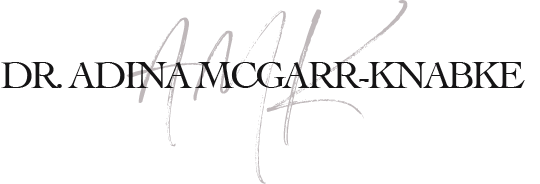
by Dr. Adina McGarr | Feb 26, 2012 | Uncategorized
“Foods high in sugar, fat, and salt, and the cues that signal them, promote more of everything: more arousal…more thoughts of food…more urges to pursue food…more dopamine stimulated approach behavior…more consumption…more opioid-drive reward…more overeating to feel better…more delay in feeling full…more loss of control….more preoccupation with food…more habit driven behavior…and ultimately more weight gain.” (Kessler, 2009)
Posted via email from My Santa Barbara Therapy Updates

by Dr. Adina McGarr | Nov 22, 2011 | Uncategorized
40-50% of the risk of developing Anorexia is genetic, it is as inheritable as Schizophrenia, Bipolar Disorder, etc.

by Dr. Adina McGarr | Nov 16, 2011 | Uncategorized
One in four adults, at some stage in their lifetime, will suffer from drug or alcohol addiction (Harris, 2006)

by Dr. Adina McGarr | Nov 9, 2011 | Uncategorized
While psychotropic medications, such as antidepressants and mood stabilizers, are a huge asset to many struggling with various mental disorders, some people do not experience symptom relief . This could result from many different factors, but one possibility is that the person simply does not have enough raw material (ie serotonin, dopamine, norephinephrine, etc.) for the medication to act upon. This is due to the fact that psychotropic medications do not assist the body in making more neurotransmitters, rather they recycle or inhibit the actions of the neurotransmitters already present. It is speculated that the long-term use of psychotropic medications may lead to depletion of certain neurotransmitter stores. Specific amino acid based supplements, however, assist in the creation and synthesis of new neurotransmitters, making them a viable option for most and especially for those who are deriving little to no benefit from their psychotropic medication.

by Dr. Adina McGarr | Oct 26, 2011 | Uncategorized
Did you know that some dopamine releasing behaviors include not only food, sex, relationships, and quenching thirst, but also bingeing, purging, gambling, and self-injurious behaviors? Some dopamine releasing chemicals include alcohol, drugs, caffeine and nicotine.

by Dr. Adina McGarr | Oct 24, 2011 | Uncategorized
Did you know that our brains our hard wired to ensure that we will repeat life sustaining activities, such as eating, drinking, procreation, and forming relationships and attachments. What happens in our brains when engaged in any of the above, is that dopamine (among other neurotransmitters) is released, which on an unconscious level informs our brains that the activity is pleasurable, important, and most importantly, must be repeated. The result is that we are drawn automatically, unconsciously toward these things, as our brains equate them with survival.






